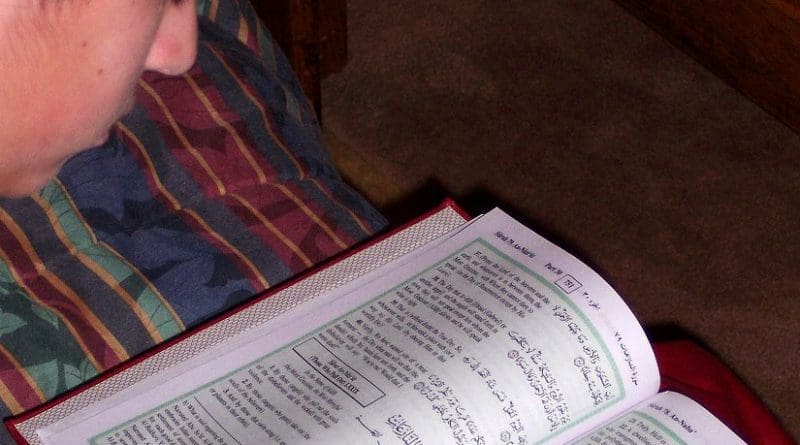Were The Doors Of Ijtihad Closed In Classic Islamic Period? – Analysis
By Rehan Khan
Ijtihad in the classic Islamic terminology is the exercise of reason to dig out solutions for the problems that beset Muslim society. The early Islamic community allowed for the use of Ijtihad as a means to retain the relevance of Islamic principles in the context of rapidly evolving realities. It was an integral part of the classic Islamic legal framework. Summoning into use Ijtihad and various other innovative tools of reasoning, Islamic scholarly tradition gave birth to the rigorous philosophy, systematic theology, ethics, and formal legalism. Investigating this scholarly tradition, Western intellectual historians of late 19th and early 20th century argued that Ijtihad that was once a salient feature of Islamic learning regressed to disuse by 13th century. Muslim scholars, according to these Orientalists, did not exercise Ijtihad; as a result, Islamic scholarship lacked creativity and originality. The Islamic orthodoxy had already set in by 13th century. Muslim scholars in the wake of this orthodoxy “closed the doors of Ijtihad”, as the Orientalist argument goes.
The eminent Hungarian scholar Ignac Goldziher in his work An Introduction to Islamic Theology and Law boldly asserted that Ijtihad had died out in Islamic scholarly by 13th century. Muslim theologians did not find the use of Ijtihad meaningful anymore. Building on his work, David Samuel Margoliouth in his book Mohammadanism held that Ijtihad was completely absent in the intellectual endeavors of Muslims in the post-formative period. This lack of Ijtihad resulted in the intellectual decadence of Islamic scholarship. Another scholar Joseph Schacht in his work The Legacy of Islam contended that Islamic learning suffered from the lack of Ijtihad after the 13th century. Did Muslim scholars completely abstain from exercising reason-based Ijtihad?
Answering this important question, Wael Hallaq in his groundbreaking work Continuity, Authority, and Change in Islamic Law argued that Muslim scholars continued to exercise Ijtihad, but refrained from founding schools of law. He maintained that the Western Orientalists could not distinguish “legal Ijtihad” from “legal schools”. Legal Ijtihad, according to him, was passionately undertaken by Muslim scholars even in later years. But why did Muslim scholars refrain from founding more legal schools? An expert on Ibn-e-Taymiyah, Ovamir Anjum cogently articulated that the continuous formation of legals schools was sowing the seeds of confusion amongst the masses. Confusion, disarray, and dissatisfaction reigned supreme amongst the people. In order to bring about legal conformity, Muslim schools were restricted to a certain number.
But how did Muslim scholars perform reason-based Ijtihad? Take a few examples all the way from the classic to the modern period. Abu Hamid al-Ghazali was the rector of Nizamiyya-e-Baghdad in the 11th century Baghdad. Ghazali negotiated a tough political settlement. The Abbasid dynasty was practically under the protection of the Seljuk dynasty. The Seljuks had assumed the executive role of administration. The classic Islamic political thought did not allow for the use of executive power by a military commander. Pressing into service his legal acumen and exercising Ijtihad, Ghazali argued that the sultanate was the constituent part of the caliphate. He brought forth a tripartite division of power: the caliph, the sultan, and the ulama. He held that the Seljuks in their capacity as commanders could also function as the rulers of the caliphate. Though theoretically under the caliph, the sultan exercised the powers to run the affairs of the state. Ghazali invented the theory of “shawka” as a source of legitimacy for an Islamic political order. He summoned into use reason-based Ijtihad in order to address that intricate political problem.
Years later in the 14th century, the Mongol invasion devastated the Islamic lands. The Islamic world was shaken to the core. The abbasid caliphate was run over by the Mongol hordes. Could there be a substitute for a caliphate? Ibn-e-Taymiyah of Damascus held that Islamic political order was legitimate as long as it administered justice to Muslims. His reformist agenda of reviving a solid political order in line with Islamic principles rested on reason-based Ijtihad. After Ibn-e-Taymiyah, Ibn-e-Khaldun came to the forefront. Could there be two caliphs at the same time? Ibne-e-Khaldun maintained that there could be two caliphs as long as they were seas apart. Being a history, Ibn-e-Khaldun was aware that there were already three caliphs respectively in Baghdad, Cordoba, and Cairo. He developed a rational reasoning for the theoretical possibility of more than one caliph at given time.
Could one legal rite borrow from another legal rite? Shah Wali-ullah in 18th century India came up with an innovative method of reasoning. He introduced the Muslims of India to the works of Malik, Shafi, Ibn-e-Hazm, and Ibn-e-Taymiyah. Being a Hanafite himself, Shah Wali-ullah extensively borrowed from the legal rites of Maliki and Shafi to demonstrate that it was permissible in Islam to be legally ecumenical. His eclecticism was rested on reason-based Ijtihad. Moving ahead, the parliamentary form of governance was passionately debated in the Islamic world in the early 20th century. Was it compatible with Islamic principles of state-craft? In his famous work The Reconstruction of Religious Thought in Islam, Iqbal contended that the democratic model of governance was completely true to the spirit of Islam. Iqbal once again demonstrated the compatibility of Islam with modern forms of political order by summoning into use reason-based Ijtihad.
As established in these examples, Muslim scholars continued to exercise Ijtihad as a method of reasoning to come up with answers to challenging questions. Dr Fazlur Rehman Malik rightly pointed out in his work The Islamic Methodology that the story of closing the doors of Ijtihad by Muslims was just an Orientalist invention.

